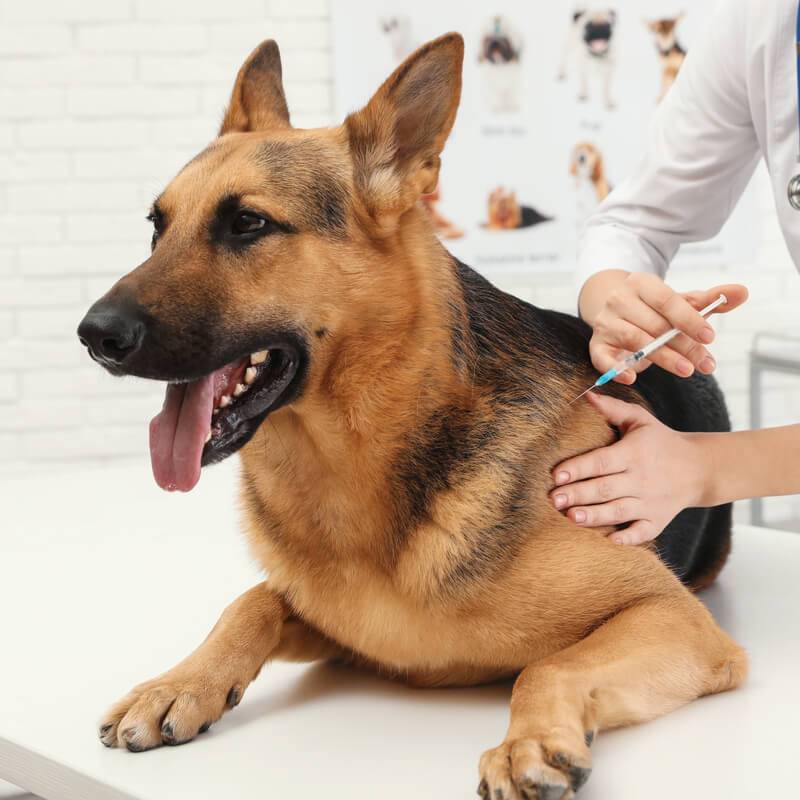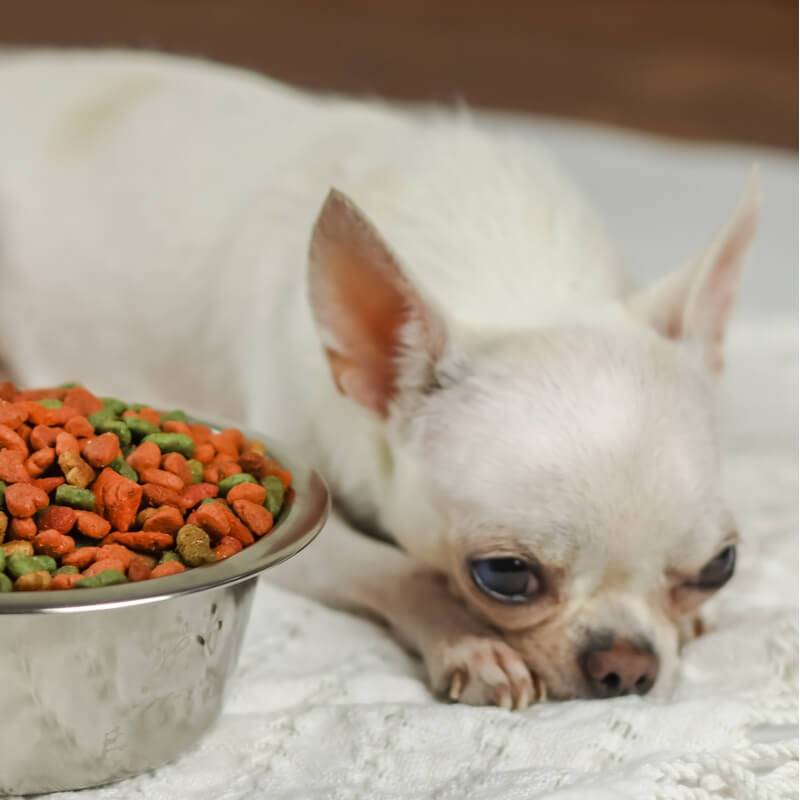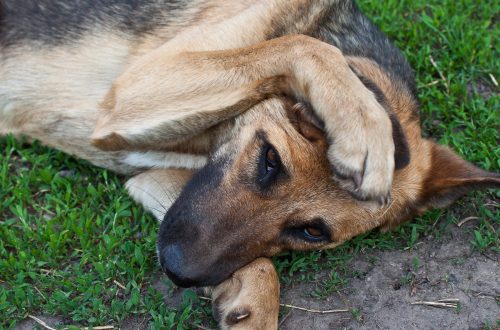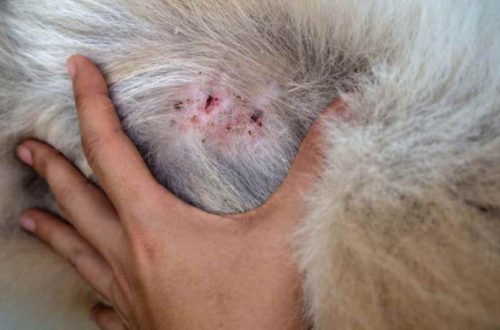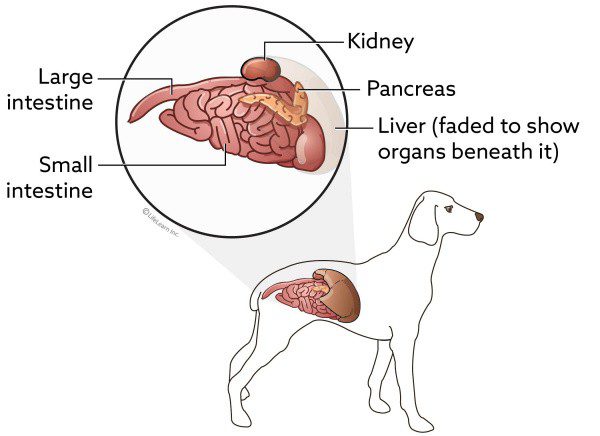
Pancreatitis in dogs
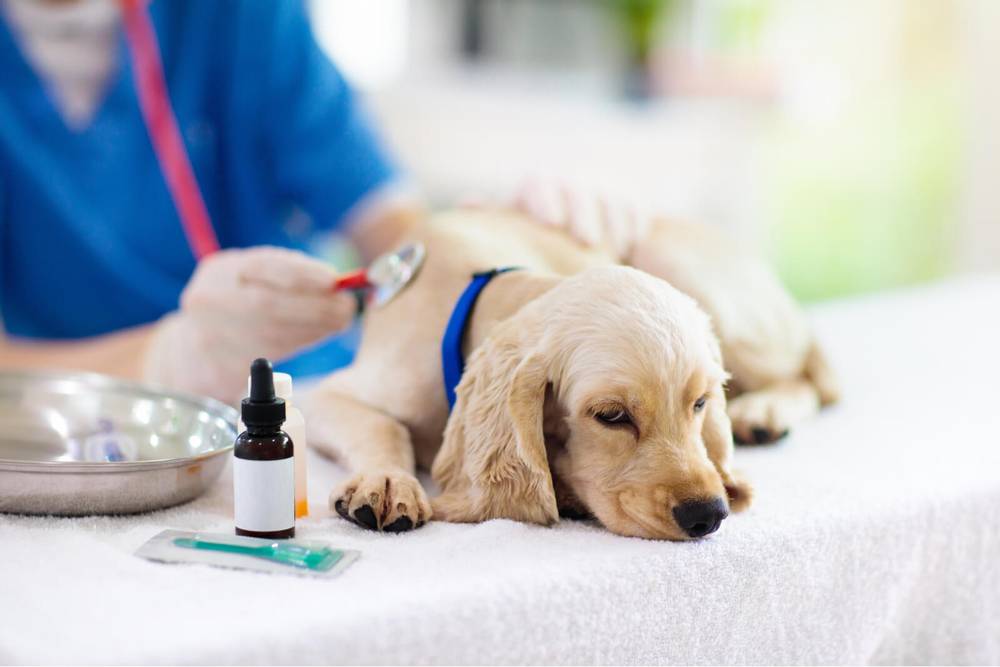
Otherwise, the animal will at least be doomed to a lifelong diet, severe complications may also develop (for example, diabetes, necrosis, peritonitis), and if the acute development of pancreatitis is missed, the dog may die. Unfortunately, the disease is diagnosed quite often when contacting a veterinarian about problems with the gastrointestinal tract in a pet.
For various reasons (which will be discussed below), an inflammatory process begins in the pancreas. Food is poorly digested or ceases to be absorbed at all, because the pancreas ceases to secrete the enzymes necessary for this process. The body stops getting the nutrients it needs. The animal becomes weak, becomes apathetic. At the same time, since the organ is idle, the tissues of the pancreas itself begin to be digested. If the process is not stopped, it will quickly lead to the death of the animal.

If the dog has an attack of pancreatitis, then it must be taken to the clinic or call the veterinarian. As a last resort, if it is not possible to deliver the animal quickly (you are in a country house in a remote place), you should call the veterinarian and follow his instructions. Cold (coolness), hunger (days) and rest – these conditions must be observed. The dog must have access to clean water. You will have to go and buy the medicines indicated by the doctor and give the pet injections. Those owners who have a history of pets with a diagnosis of “inflammation of the pancreas” should take a set of medicines, syringes and everything else agreed with the veterinarian for first aid with them to the country house or on a hike.
Contents
Types of pancreatitis in dogs
There are two types of pancreatitis in dogs. Primary. This is a separate, independent disease that arose for one reason or another (for example, with improper feeding or after an infection). Secondary. Inflammation of the pancreas appears as a secondary disease. It can be provoked by oncology, hepatitis, infection with worms or other parasites, severe poisoning, trauma, etc.
There are also two forms of the course of the disease:
Sharp. It begins abruptly: vomiting, diarrhea, fever, refusal to eat. Even the most inattentive pet owners will not miss the onset of the disease. And, oddly enough, although acute pancreatitis threatens with terrible complications: necrosis, sepsis, peritonitis, due to obvious symptoms, a sick pet has many chances to recover. Unless, of course, the owner grabs him in an armful and runs to the clinic for treatment.
Chronic. A silent killer. At first, pancreatitis does not manifest itself in any way, then – with individual symptoms, which are usually attributed to a slight malaise. The dog does not eat well, is sad, toils, the owner expects that “everything will pass tomorrow.” And wastes valuable time. Obvious signs of the disease become visible only when the process is practically irreversible and less than 20 percent of living tissue remains in the pancreas. And that is almost certain death.
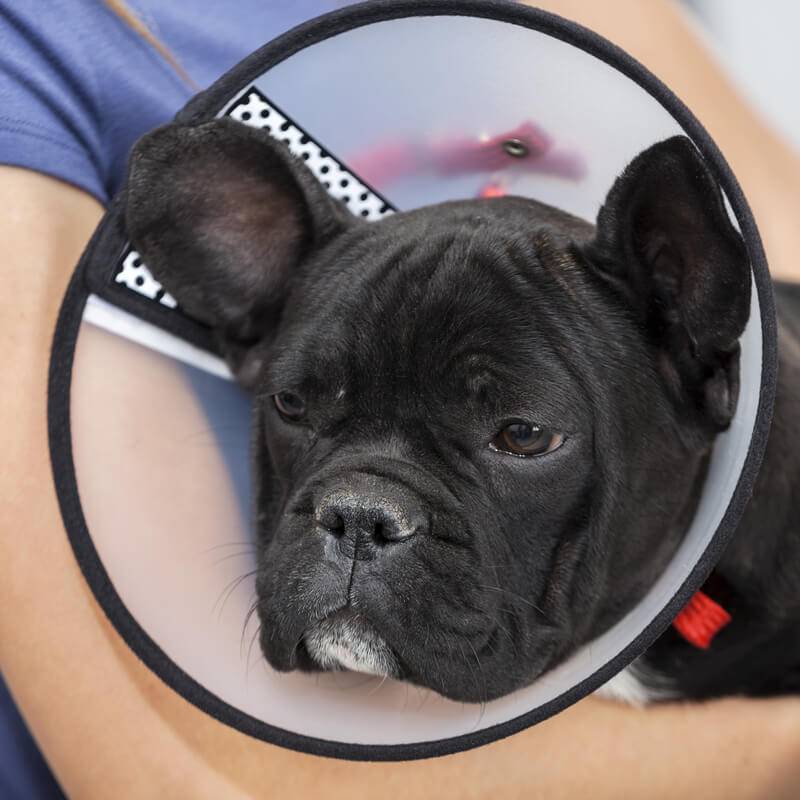
Causes of Pancreatitis in Dogs
The trigger for the development of the disease can be a variety of reasons. Let’s take a look at the most common ones.
Genetics. In principle, a dog of any breed can get sick, and even without a breed at all. But some breeds are thought to be more prone to developing pancreatitis. These are Yorkshire Terriers, Poodles, Collies, Miniature Schnauzers, German Shepherds, Cocker Spaniels, Cavalier King Charles Spaniels, Boxers.
Heredity. If the puppy’s parents (or one of them) had pancreatitis, then the dog’s risk of developing this disease will be quite high. If possible, it is better to know about such prospects in advance in order to take preventive measures. Well, do not forget that you should undergo an annual medical examination.
Incorrect food. The dog receives too fatty, spicy, salty food. As a rule, this happens when the animal is fed “from the table” or leftovers and leftovers. Sweets are also not allowed.
Obesity. In over-fed animals, the metabolism is disturbed. And vice versa: as a result of its violation, obesity develops. There is an increased load on the internal organs. One of the weak points is the pancreas.
Little physical activity. Dogs that are unable to run their paw kilometers are at risk. Especially medium and large animals that need adequate exercise. Often in the city, busy owners go out with the animal for a walk a couple of times for 15 minutes a day. The dog becomes inactive, lazy, loose and … gets sick.
Infections. A number of infectious diseases associated with the gastrointestinal tract and other internal organs provoke inflammation of the pancreas.

Liver Disease. If you find that your dog has liver problems, you can expect pancreatic problems with a high degree of certainty.
Power change. Sometimes, when changing owners or in other situations, the dog loses its usual diet and begins to receive some kind of food that is completely inappropriate for it. As a result – a blow to the pancreas.
gallbladder problems. Pathologies or diseases of the gallbladder contribute to the occurrence of pancreatitis.
Injury. A severe bruise, not to mention a rupture, is a sufficient reason for the development of inflammation of the pancreas.
Side effect of long term medication. Often a dog is treated for one serious disease, but as a reaction to an overabundance of drugs, pancreatitis occurs in the body. Particularly dangerous are tetracycline antibiotics, paracetamol and some other drugs.
Low pressure. If for a long time the animal has low blood pressure, then it is quite realistic to expect complications on the pancreas.
Diseases of the small intestine. Problems with the gastrointestinal tract are directly related to problems with the pancreas.

Elevated blood lipids. By itself, hyperlipidemia does not manifest itself in any way. It can be diagnosed only with the help of a biochemical blood test. However, she is doing her destructive work.
Increased calcium in the blood. Hypercalcemia occurs mainly with hyperplasia (enlargement) of the parathyroid glands and oncology. In parallel, the pancreas is destroyed.
Duodenal reflux. The root cause of duodeno-gastric reflux is a violation of the motility of the stomach and the initial sections of the small intestine. Later they are joined by pancreatitis.
Symptoms of pancreatitis in dogs
Different forms of pancreatitis (acute and chronic) have different symptoms.
Acute form (may not be observed all at once):
- Refusal to eat;
- Vomiting;
- Diarrhea;
- Temperature;
- Dehydration;
- Pain;
- yellowing of mucous membranes;
- Rapid pulse;
- Dyspnea;
- Itching itch.

Chronic form (may not be observed all at once):
- Refusal to eat;
- Slimming;
- Weakness;
- Dull coat;
- Trembling paws.
How to diagnose pancreatitis?
Diagnosis is not so simple, especially in the chronic form. Vague, blurred symptoms. Pancreatitis is often confused with poisoning, diseases of the heart and gastrointestinal tract. Therefore, it is not necessary to treat the examination casually. The doctor will prescribe a series of studies to determine the diagnosis, as well as the degree of destruction of the pancreas:
- Ultrasound;
- X-ray;
- Duodenography;
- Blood tests.
Treatment for pancreatitis in dogs
After the clinical picture of the animal’s condition is clear to the doctor, he will prescribe treatment. In any case, you will need a diet, perhaps a lifetime. And depending on the severity of the condition – medication or surgery.
Diet
There is no escape: if you want to have happy long years of life ahead of you and your pet, you will have to rebuild the usual nutrition algorithm. If the animal was previously kept on industrial feed, now it is recommended to feed the dog with medicinal food. The veterinarian will tell you which line to choose.
If on natural feeding, then you will have to tinker with the diet.
It is recommended to feed a dog with pancreatitis 5-6 times a day, but in small portions. Food should be soft, ideally ground in a blender and at room temperature or slightly warmer.
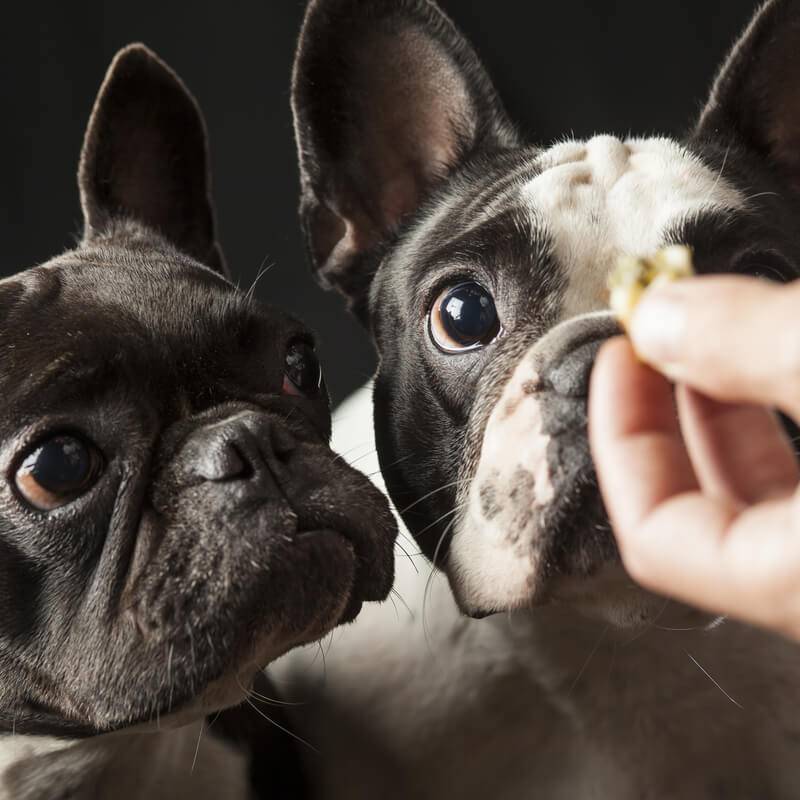
Clean water should always be freely available.
Main products: lean meat, low-fat cottage cheese, buckwheat or millet porridge, boiled vegetables.
Exclude foods: egg yolk, sour cream, all fatty, fried, salty, sweet, smoked, fresh vegetables and fruits.
Medication
Unfortunately, there is no magic pill for pancreatitis. The veterinarian will prescribe only symptomatic treatment.
With pain. Antispasmodics and analgesics, usually by injection.
When vomiting. Prescribe antiemetics.
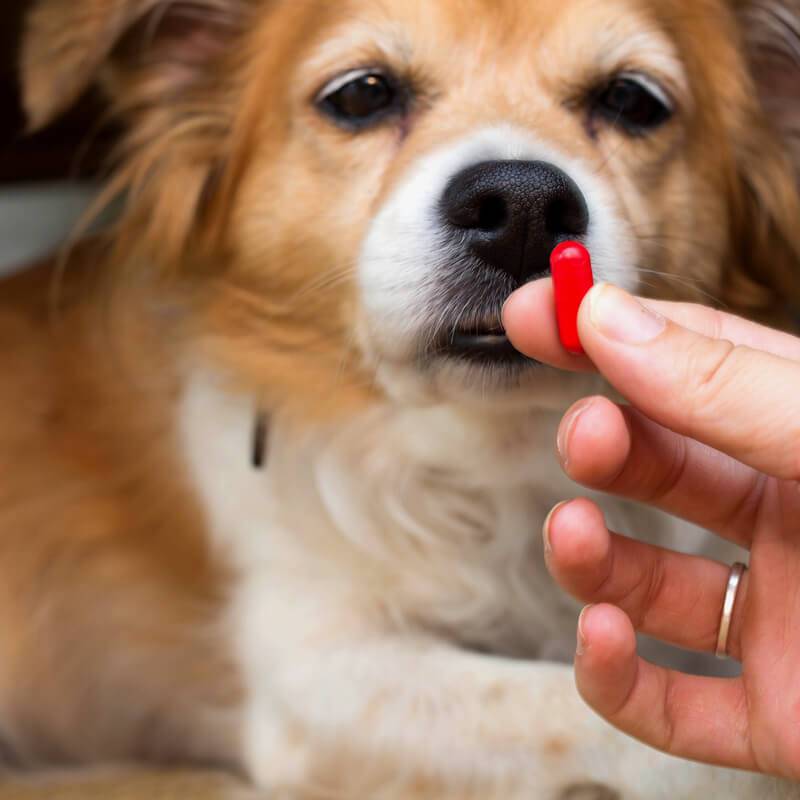
In case of dehydration. Droppers to restore the water-salt balance.
When infected. Antibiotics.
Operation
Not the easiest surgery. However, often giving the very small chance of salvation.
If there is a chance, it should definitely be used. What will the surgeon do? It will remove the dead part of the gland, clean the outgoing ducts, and remove the cysts.
Possible complications
Complications from advanced pancreatitis are very severe, up to the death of the animal. Every effort must be made to prevent them.
Possible complications:
- Necrosis;
- Sepsis;
- Peritonitis;
- Diabetes;
- Blockage of the bile ducts;
- Intoxication.

pancreatitis in puppies
Puppies also suffer from pancreatitis, and it is especially dangerous for them. Inflammation of the pancreas can provoke a hereditary factor, helminthic invasion, fatty foods.
Measures to Prevent Pancreatitis in Dogs
The main preventive measure is proper nutrition. If the animal is bought ready-made food, then you need to take a premium group. If the dog is fed natural food, then it should be cooked separately and make sure that the meat for cooking cereals is lean, and also do not forget about boiled vegetables and vitamin supplements. The porridge must be fresh! Food from the table is unacceptable, feeding with what people have rejected – even more so. The dog is not a pig. Following this rule, coupled with quality walks and physical activity, will help your pet stay healthy for a long time.

At the slightest doubt, an examination should be carried out. If the dog has a predisposition to pancreatitis or its initial stage, the veterinarian will prescribe a course of treatment. Diseases of the pancreas are insidious in that they go into remission, but are rarely completely cured. Therefore, owners need to be prepared for the fact that their dog will be shown a lifelong diet and maintenance drug therapy. Unfortunately, an outbreak of pancreatitis can be provoked by a disease, a piece of something stale eaten on the street, and even overheating or hypothermia.
Also, preventive measures include timely vaccination and annual medical examination. Treat the health of your four-legged friend with all care and seriousness!
The article is not a call to action!
For a more detailed study of the problem, we recommend contacting a specialist.
Ask the vet
March 18 2020
Updated: 22 May 2022



